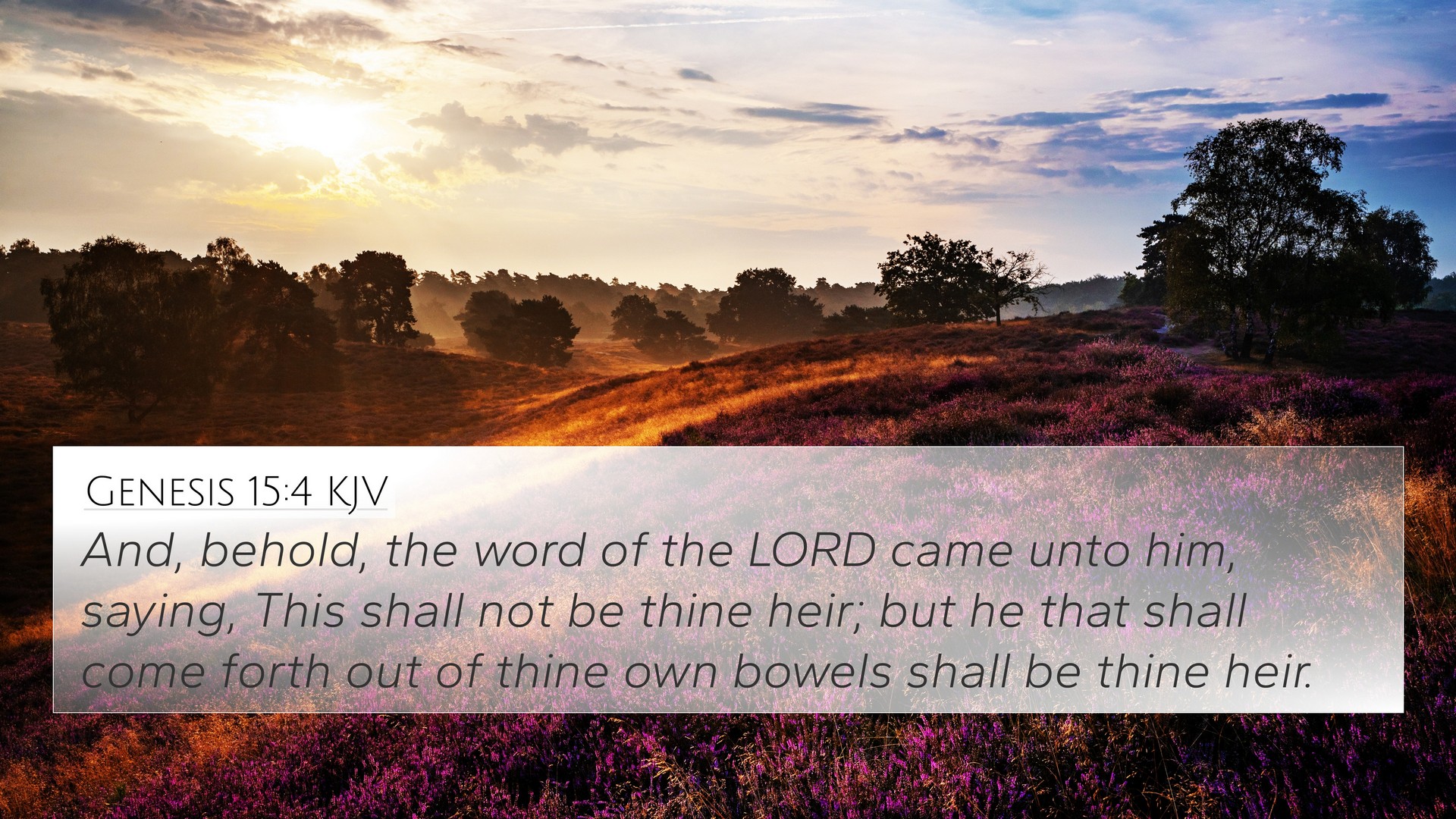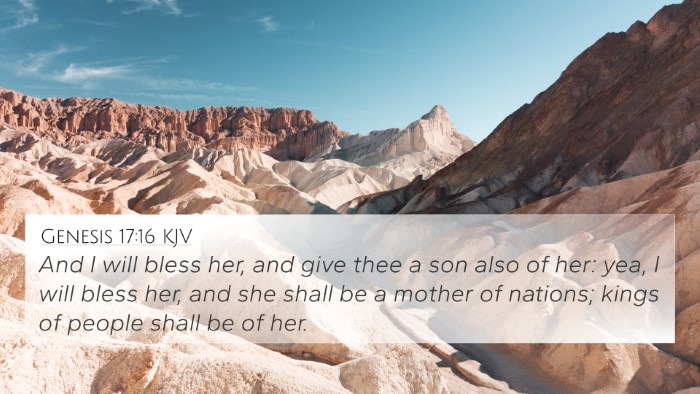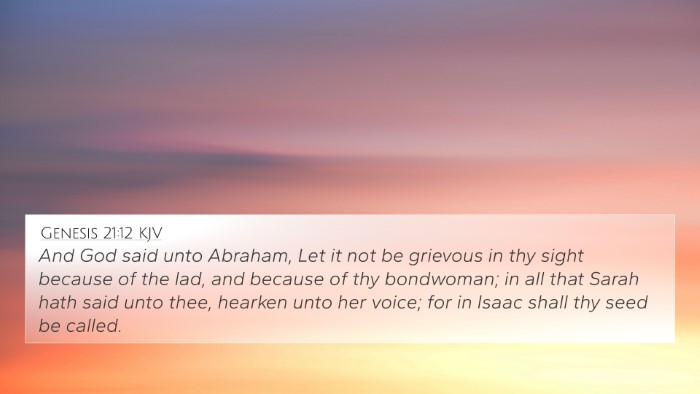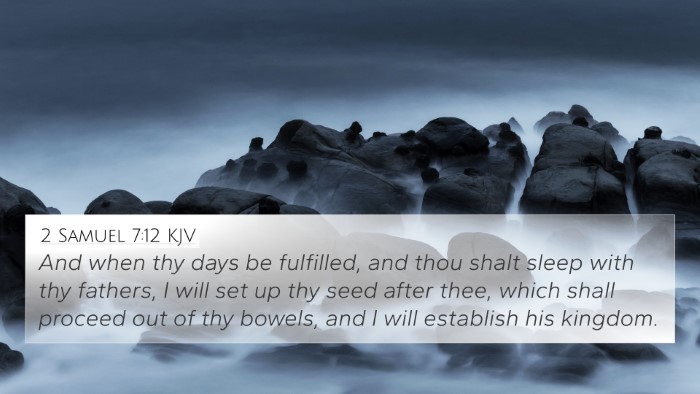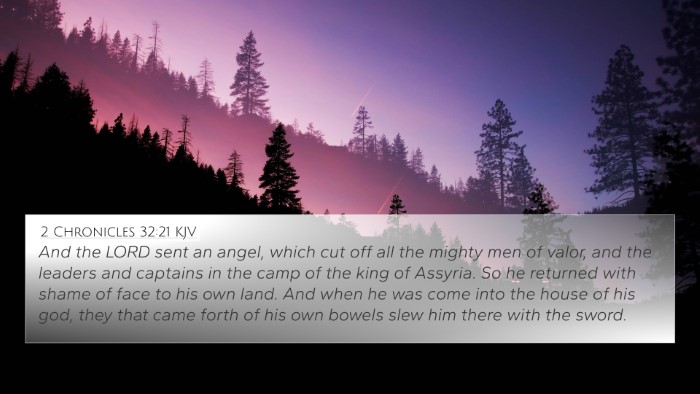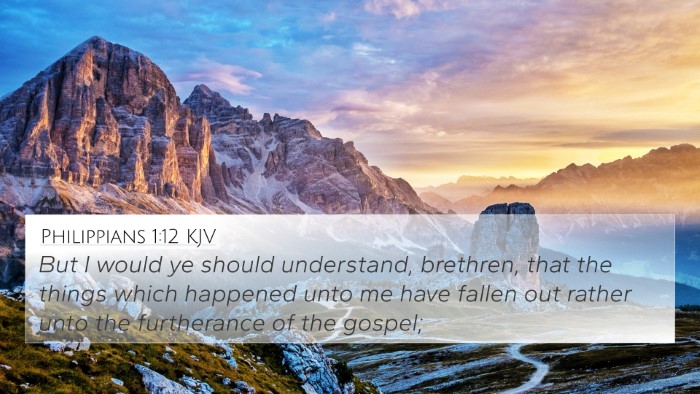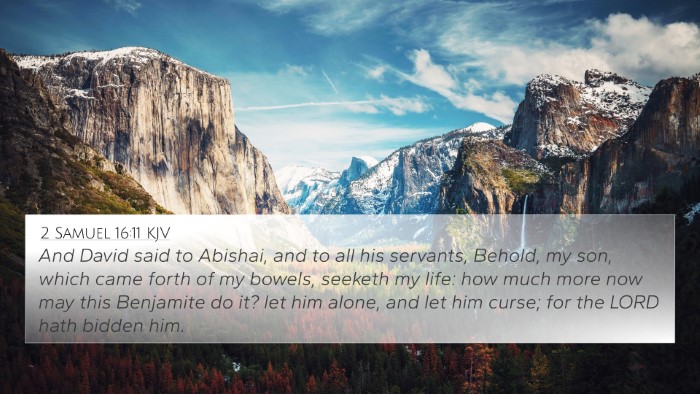Understanding Genesis 15:4
Genesis 15:4 presents a crucial moment in the life of Abraham, reflecting God's promise and covenant. This verse states, "And behold, the word of the Lord came unto him, saying, This shall not be thine heir; but he that shall come forth out of thine own bowels shall be thine heir." (KJV). Below is a summary of its meanings based on insights from public domain commentaries.
Context and Background
This verse appears in the narrative where God reassures Abraham of His promises after Abraham has expressed concern about his lack of an heir. The context speaks to themes of faith, promise, and God's providential care in the face of uncertainty.
Commentary Insights
-
Matthew Henry:
Henry emphasizes the divine declaration of God’s intentions to Abraham, underlining that it is not just a promise but a profound reassurance. God points out that an heir of Abraham will come from his own body, thus reaffirming that God's plans diverge from human expectations.
-
Albert Barnes:
Barnes articulates the importance of the phrase "out of thine own bowels," which signifies that Abraham’s heir will be a natural descendant, reinforcing the covenant. This emphasizes the personal nature of God's promises and the physical inheritance that Abraham would receive.
-
Adam Clarke:
Clarke offers a detailed exposition on the implications of God's word, suggesting that this promise sets the foundation for God's covenant with Abraham. It suggests a relationship built on trust and divine intention.
Thematic Connections
The themes of this verse resonate throughout both the Old and New Testaments, highlighting God's faithfulness and the concept of heirs in a spiritual sense. Here are some corresponding themes and cross-referenced Bible verses that deepen our understanding:
- Romans 4:13: Connects with the idea that Abraham would be the father of many nations through a promise based on faith.
- Hebrews 11:11: Highlights Sarah’s faith in God's promise even when it seemed impossible.
- Galatians 3:29: Sheds light on believers being heirs according to the promise made to Abraham, linking the Old Testament covenant with New Testament theology.
- Genesis 21:12: Focuses on the specific mention of Isaac, affirming that he is the chosen heir from Abraham's lineage.
- Luke 1:73: Discusses the mercy promised to Abraham, linking the narrative thread of promise throughout the scriptures.
- Romans 8:17: Illustrates that believers are joint heirs with Christ, drawing a parallel to the inheritance promised to Abraham.
- 1 Peter 3:6: Refers to Sarah as an example of obedience, reflecting back on the faith shown in Genesis 15.
Conclusion
Genesis 15:4 serves as a reminder of God's faithfulness in fulfilling promises to His people. The assurance given to Abraham continues to resonate with believers today, encouraging faith and patience in the fulfillment of God's promises. By exploring the connections among other Bible verses, we see a rich tapestry of interwoven themes that guide our understanding of God’s covenants and our identity as His people.
Further Study and Tools
For those interested in delving deeper into the connections between Bible verses, consider utilizing tools for Bible cross-referencing such as a Bible concordance or a cross-reference Bible study guide. These resources will enhance your understanding of the rich inter-Biblical dialogue and thematic connections throughout scripture.
